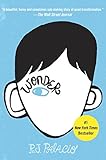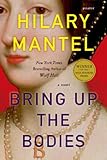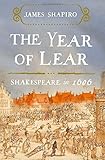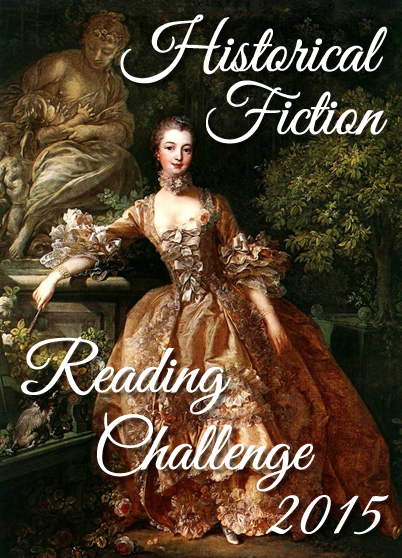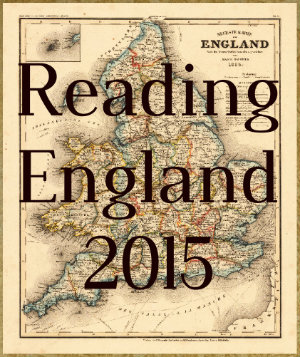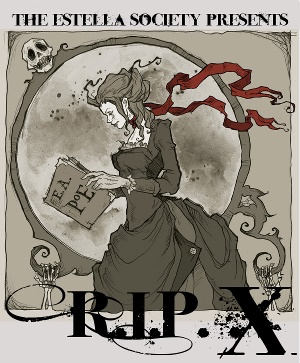
On the last day of the year, I always like to reflect on my reading year. This year, Goodreads has created a really handy infographic with some interesting statistics from the reading year. I wish they allowed for downloading and embedding. I was fascinated to learn that I had read 20,722 pages this year. That particular statistic is not one I’d ever thought about before. I read 62 books, which is more than I’ve ever read in a single year before. That works out to an average book length of 332 pages. It’s also an average of almost 57 pages each day. I suppose Goodreads calculates the number of pages in each book I marked “read” to determine the total for the year, but I should mention that some of the books are audio books. Still, those should count as pages read, I suppose, because it works out to be the same thing. Sometimes when you are listening, it’s not so obvious how long books are. I mean, yes, it took me forever to listen to The Fiery Cross, but I didn’t realize it was over 1,400 pages long. No wonder! It took me so long to finish listening to that book that I have been somewhat reluctant to commit to the next book in the series! The Fiery Cross book is over 55 hours long to listen to, but the next one is 57 hours long!
Some reading statistics:
- Total books: 62
- Total fiction books: 44
- Total nonfiction books: 10
- Total drama books: 4
- Total poetry books: 4
- Total audio books: 16
- Total re-reads: 15
- Graphic novels/memoirs: 5
My favorite books of the year broken down into some random categories (re-reads not considered—I already knew I loved them or I wouldn’t have read them again):
Children’s
Reviews:
- Wonder, R. J. Palacio
- My Sister Lives on the Mantelpiece, Annabel Pitcher
Young Adult (YA)
Reviews:
- We Were Liars, E. Lockhart
- All the Bright Places, Jennifer Niven
- Where She Went, Gayle Forman
Adult Fiction
- Bring Up the Bodies, Hilary Mantel
- The Lotus Eaters, Tatjana Soli
- Mrs. Dalloway, Virginia Woolf
- Song of Solomon, Toni Morrison
- The Remains of the Day, Kazuo Ishiguro
- Station Eleven, Emily St. John Mandel
Nonfiction
Reviews:
- The Year of Lear, James Shapiro
- Fun Home, Alison Bechdel
- Book Love, Penny Kittle (on my education blog)
Audio Books (re-reads considered if I have never listened to them before)
Reviews:
- My Sister Lives on the Mantelpiece, Annabel Pitcher, narrated by David Tennant
- Revolution, Jennifer Donnelly, narrated by Emily Janice Card and Emma Bering
My least favorite reads of the year:
- Trigger Warning, Neil Gaiman
- Candide, Voltaire
- Walden, Henry David Thoreau
- Gilead, Marilynne Robinson
- Amy Snow, Tracy Rees
I know it’s bad form to lump a couple of classics in with that group, but aside from a few nuggets of wisdom, I didn’t enjoy reading either Candide or Walden. I usually like Neil Gaiman quite a lot, but Trigger Warning didn’t do it for me. I should mention that I didn’t rate any of the books I finished this year less than three stars, which for me means it was okay—not bad, just okay. I am no longer patient with books that I don’t like. I am much more likely to stop reading books that are sitting on two stars at about 50 pages in. My point is even my least favorite reads of the year weren’t bad.
Reading Challenges
2015 Reading Challenge
completed her goal of reading 52 books in 2015!
I was able to meet the challenge of reading a book a week for the first time ever this year. I’m really excited about that because it’s been an unreachable goal of mine for some time. In fact, as you can see, I surpassed this goal by reading 62 books! Last year, I read about half that number.
I completed the R. I. P. Challenge by reading four R. I. P. books from September 1 to October 31. The books I counted toward this challenge included:
- This House is Haunted, John Boyne
- Things Half in Shadow, Alan Finn
- The Graveyard Book, Neil Gaiman
- Fiercombe Manor, Kate Riordan
I completed the Historical Fiction Reading Challenge by reading 20 books from January 1 to December 31. I determined a book was historical fiction if it was set in a time that was reasonably outside the time in which it was written, either partially or totally. Thus, books like Song of Solomon and Revolution count because a substantial portion of both books is set in a time before the book was written. The books I counted toward this challenge included:
- Bring Up the Bodies, Hilary Mantel, 1536
- Wolves of Andover, Kathleen Kent, 1670’s
- The Fiery Cross, Diana Gabaldon, 1760’s
- The Serpent of Venice, Christopher Moore, late 1200’s
- The Lotus Eaters, Tatjana Soli, 1960’s and 1970’s
- Pleasantville, Attica Locke, 1990’s
- The Annotated Wuthering Heights, Emily Brontë, late 1700’s and early 1800’s
- Go Set a Watchman, Harper Lee, 1950’s
- Gilead, Marilynne Robinson, 1950’s
- Song of Solomon, Toni Morrison, late 1800’s to 1970’s
- The Piano Lesson, August Wilson, 1930’s
- The Remains of the Day, Kazuo Ishiguro, 1950’s
- This House is Haunted, John Boyne, 1867
- King Lear, William Shakespeare, 8th century BCE
- A Thousand Acres, Jane Smiley, 1970’s (review is from first read; I didn’t write a new review)
- The Shadow of Night, Deborah Harkness, 1590’s
- Things Half in Shadow, Alan Finn, 1869
- Fiercombe Manor, Kate Riordan, 1890’s and 1933
- Amy Snow, Tracy Rees, 1848
- Revolution, Jennifer Donnelly, 1795 (parts)
I did not complete the Reading England Challenge, having read 10 out of 12 books from January 1 to December 31. The books I counted toward this challenge included:
- Bring Up the Bodies, Hilary Mantel: London
- As You Like It, William Shakespeare: Warwickshire
- The Tell-Tale Heart, Jill Dawson: Cambridgeshire
- The Annotated Wuthering Heights, Emily Brontë: Yorkshire
- The Remains of the Day, Kazuo Ishiguro: Oxfordshire
- This House is Haunted, John Boyne: Norfolk
- King Lear, William Shakespeare: Kent
- Fiercombe Manor, Kate Riordan: Gloucestershire
- Amy Snow, Tracy Rees: Surrey
- My Sister Lives on the Mantelpiece, Annabel Pitcher: Cumbria
I did not complete the Literary Movement Reading Challenge, having read 5 out of 12 books from January 1 to December 31. The books I counted toward this challenge included:
Medieval—The Lais of Marie de France
Renaissance—As You Like It, William Shakespeare
Enlightenment—Candide, Voltaire
Romanticism—The Annotated Wuthering Heights, Emily Brontë
Transcendentalism—Walden, Henry David Thoreau
I stalled out after Walden took me too long to finish, and I couldn’t keep up after that.
I completed the Outdo Yourself Reading Challenge, having read 62 books from January 1 to December 31, thus outdoing my previous number of books read in a year.
I did not complete the Back to the Classics Reading Challenge, having read 7 out of 9 books from January 1 to December 31. The books I counted toward this challenge included:
- Book with a person’s name in the title: Mrs. Dalloway, Virginia Woolf
- Nonfiction classic: Walden, Henry David Thoreau
- 20th century classic: The End of the Affair, Graham Greene
- Classic by a woman author: The Annotated Wuthering Heights, Emily Brontë
- Classic in translation: The Lais of Marie de France
- Classic play: As You Like It, William Shakespeare
- Classic novella: A Christmas Carol, Charles Dickens
In the coming year, I plan to have a Reading Challenges page so I can more easily keep track of what I’ve read. This post was very hard to write because I had to look all of this up.
Finally, here is my map for the Where Are You Reading Challenge:
I wouldn’t have guessed this from the first six months, which was slow-going until I stopped worrying about a couple of challenges, but 2015 turned out to be my best reading year yet. I read some truly great books and returned to some favorites, too.
